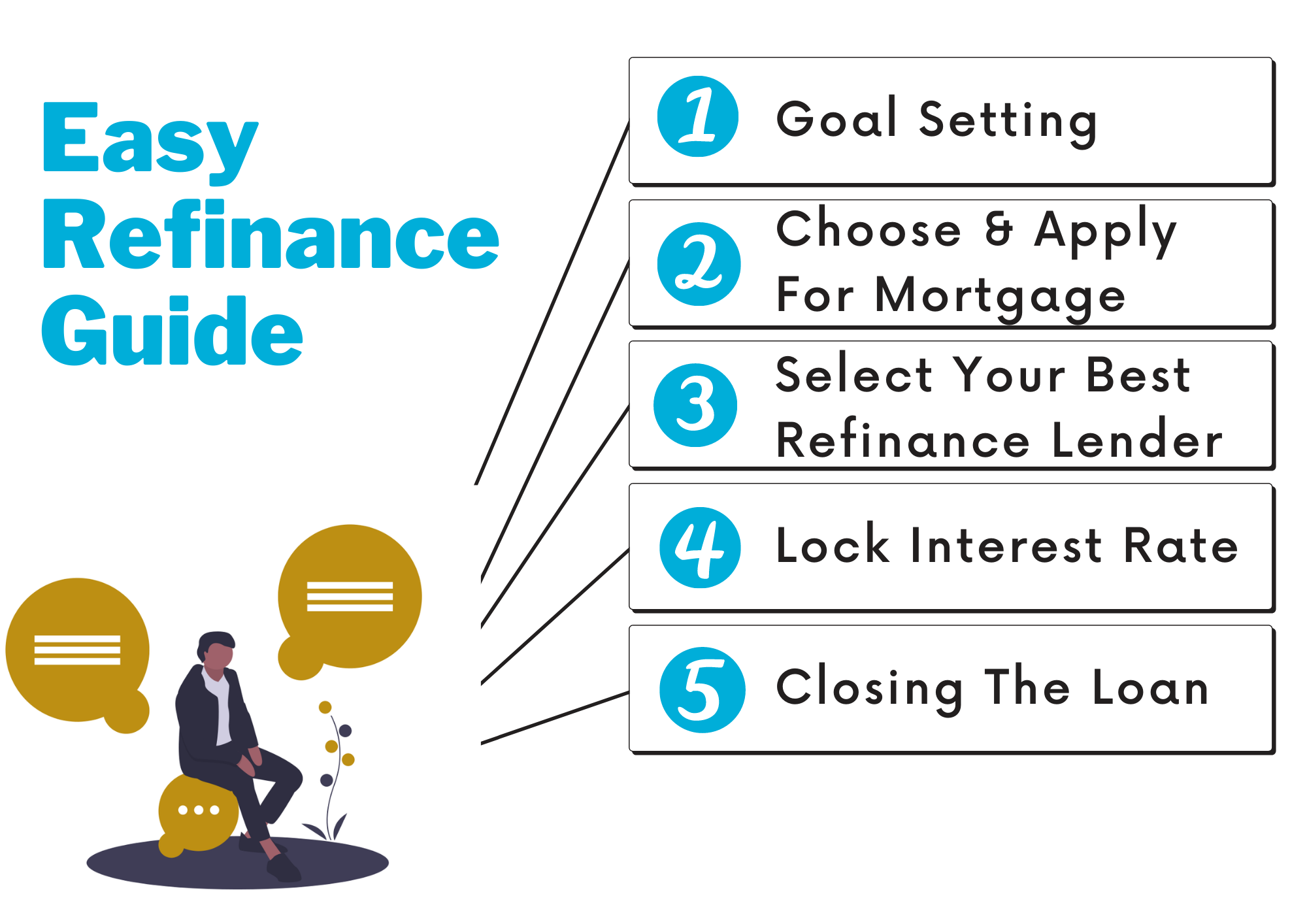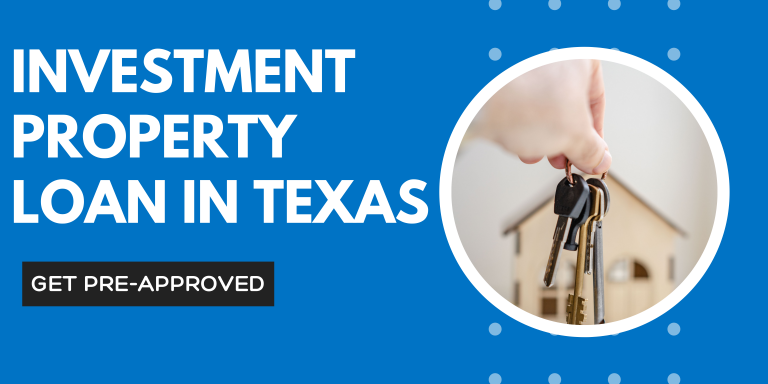An investment property loan in Texas refers to a borrowed money for buying or building a rental property which has the potential to produce income. This happens by leasing the space out in order to provide monthly cash flow. On the other hand, some renovate the investment property and then resell it after increasing its value.
Typical property investment loans carry higher mortgage rates and stricter standards than the standard mortgages. Qualifying for a single-family home requires at least 15% – 20% down payment. It depends on the lender but if you cannot put at least 15% down, you may still qualify if you have a good credit. Investment loans for multifamily homes require a 25% down payment.
Mortgage lenders in Texas typically charge more for rental properties or non-owner-occupied properties. Therefore, it can really be a challenge if you are searching for a cheap mortgage for an investment property loan in Texas.
Is It Difficult to Get a Loan for an Investment Property in Texas?
Texas mortgage lenders see investment properties as a greater risk. They want to ensure that during the worst-case scenarios, for instance your tenant stops making his payments, you can still afford to pay for the monthly mortgage payments.
Unlike the mortgage loans for a primary residence, Texas lenders require a larger down payment on rental properties, often between 20% to 35%. A traditional mortgage can get you the best rates and terms. However, you can max out at four conventional loans for an investment property in Texas.
Terms for Investment Property Loans
- The available options are 10 years, 15 years, 20 years, 25 years, and 30 years.
- The adjustable rates are also available, but it depends on the length of time you intend of owning the property.
Have a question? Let's chat!
Why Does an Investment Property Loan in Texas Have Higher Interest Rates?
Several factors can impact the interest rates for an investment property. It includes your down payment, credit score, and the property type being purchased.
Mortgage lenders in Texas consider a lot of factors whenever they make loan decisions. For instance, they know that the borrowers are more likely to abandon rental properties than their primary residence during financial difficulties.
As a matter of fact, Wharton School conducted a report and found that some investors cease to pay investment property loan if the property is a poor investment for them.
How To Lower the Mortgage Rates for Investment Properties in Texas?
Make Larger Down Payment
Normally the minimum down payment needed for an investment home is 20%. But did you know there is a pretty big change in rate at 25%? Putting just an extra of 5% down can save you up to 1 point or change the rate as much as 0.5%!
Borrowing against your own home equity can help you with a larger down payment. In case you have a stellar investment opportunity, you can consider borrowing against your 401(k).
Improve Your Credit
Conventional funding highly depends on the credit rate. Therefore, having a low credit score can be an issue.
Buyers with high credit score can be charged less in rent. The fastest and easiest way to increase your credit score is by paying down credit cards. Dropping your credit utilization from 50% down to 20% or less can increase your credit score by as much as 50 points!
A free way to track this is using any credit application (most banks offer this for free.) After you paid down the credit card, keep a close eye on the credit monitoring app. When you see the correct, lower balance – that is the time have your credit check done for the mortgage.
Buy down the rate
The term “buy down” means to pay an upfront fee for a lower rate. This SOMETIMES can be beneficial but will really depend on your investment strategy.
For example, someone who is planning to keep the investment property for 3-5 years may not see a benefit in spending the upfront costs to buy down the rate.
Compare that to the investor who keeps their properties forever, where the lower rate will be beneficial through the term of the loan.
What about the investor who plans to keep it, but may refinance? A common strategy is to do a cash-out refinance to pull out the equity and reuse it towards another property. This may be another reason to NOT buy the rate down, as you’ll end up with a new rate in the future anyways.
Each scenario is different, so try to lay out a solid investment strategy upfront. This could help save thousands of dollars over the years.
What Are the Types of Investment Property Mortgages in Texas?
You might be wondering what type of loan is best for an investment property. Texas mortgage programs for rental properties are pretty similar to those offered for primary properties. However, they have stricter standards and higher interest rates.
The following rental property loan options can help you buy your first income property, add to your rental property portfolio, or refinance an existing mortgage.
Conventional Loans
A conventional or conforming loan offers lower rates than the other types of investment property loan in Texas. Backed by the Fannie Mae or Freddie Mac, mortgage lenders in Texas often require a 20% down payment. These loans usually don’t have mortgage insurance.
Conventional loans are the most common way to purchase/refinance investment loans.
FHA Multi-unit Loans
If you are a borrower who struggles to save up for a big down payment or if your credit score is below 680, then an FHA multi-unit loan could work for you!
Unlike conventional financing for rental properties, FHA loan allow lower credit scores as well as down payment options starting at 3.5%. You can even use rental income in order to qualify. However, you must reside at one of the units.
VA Multi-unit Loans
Backed by the U.S. Department of Veterans affairs (VA), VA multi-unit loans have no minimum credit score or required down payment. Active-duty service members, veterans and eligible spouses can qualify for an investment property in Texas. Up to 7 units can be bought, including one designated for business. The VA multi-unit loan borrower must live in one of the property units.
Portfolio Loans
Your portfolio lender has a freedom to set his own rules for an investment property loan in Texas. Portfolio loans for rental properties may have higher rates. However, these programs can possibly give you an opportunity to finance more properties.
Commercial Loans
People who want to buy a property with five or more units or borrow against a property’s potential income can apply for commercial residential loans. These can be costly and complicated than other types of investment property loans.
Private Money / Hard Money Loans
Private money loans for real estate properties don’t come from an institutional bank or lender. Rather, the investor could be a friend or family member. Sometimes, private money lenders can be companies like private equity funds that use money from accredited investors to back various projects. They may take a ‘piece of the action’ by participating in the project in exchange for lower interest rates or fees.
The criteria for approval and the terms of each loan are worked out on a case-by-case basis. Private money funding is a good source for future investments based on the current property performance.
Home Equity Loans & HELOC
Typically, you can use home equity loan or HELOCC when purchasing a rental property. Your home equity helps you secure low rates without going through a process of acquiring a second mortgage.
As compared to other forms of borrowing like credit cards and personal loans, home equity loan or HELOC usually comes with lower interest rates. The cash acquired can be used for making repairs or improvements on an investment property.
This type of investment property loan in Texas usually comes at a fixed rate where payments are made over a certain amount of time.
Seller Financing
Seller financing is a good choice when the real estate market is in a down cycle. Buyers who are investing for property that is difficult to qualify for conventional financing also opt for this type of rental property loan.
It is also referred to as owner financing, seller carryback, or a purchase-money mortgage. Sellers take advantage of it to spread out capital gains as an alternative to conducting a 1031 tax-deferred exchange.
Depending on the needs of the buyer and seller, loan terms for seller financing can be completely customized.
Texas Investment Property Loan Requirements
Lending guidelines for rental property loans come similar to the mortgage you’d take out for your primary residence – just with stricter requirements. Let us tackle each of them below.
Down Payment
As mentioned earlier, buying a single-family investment property in Texas will usually need a 20% down payment, depending on your credit score. A multifamily property on the other hand will be between 3.5% – 25%
Rental property down payment requirements will be less strict if you will reside in the unit. Say you plan to buy a townhouse with two units, and you decided to stay in one while having the other rented out. Therefore, you can put down as little as 10% only since you’ll be living on the property. However, if this still feels higher for you, you may want to consider an FHA loan or VA loan for multifamily properties. Some may not have enough for a down payment but eagerly wants to look for an investment property loan in Texas with 10% down. As long as you will reside in the premises, you can qualify for an FHA or VA loan with as low as 3.5% down payment for the former and 0% for the latter.
Credit Score
With a stronger overall financial profile, your Texas mortgage lender may offer you more flexibility on down payment requirement and interest rates. Six months of cash reserves and a low debt-to-income (DTI) ratio together with a high credit score can get you approved for investment property financing.
Lenders usually prefer a minimum of 680 or 700 for credit score. A minimum of 680 if you can make a down payment of 15% to 20%. But, if you can put down 25 or more, your minimum credit score is 640. In this case, the reserve requirements may be higher.
Rental Income Qualifications
Using potential rental income may possibly help you qualify for a loan. As part of the application process, the lenders will credit $0.75 on the dollar using the current market rate when factoring in rental income. Thus, if the market rate for a rental similar to the one you’ll own is $1,000 per month, your lender will calculate $750 a month into your income information.
Cash Reserves
If you own a rental property in Texas, it means that you are responsible for the maintenance, repair and property holding costs. Therefore, a six-month cash reserve can be crucial for home repairs and improvements and expenses for rental properties that inevitably pop up.
Requirements for cash reserves vary depending on the type of investment property loan in Texas, other owned investment properties and financial history.




